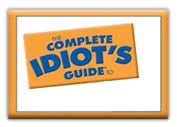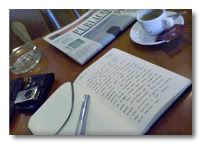
Bilingual entry.
English version below.
A União Europeia existe?
Does the European Union exist?
Entrada completa. / Post completed.

Nem de propósito, no seguimento da entrada anterior, que foca a Turquia e a UE, o editorial do Público de hoje põe o dedo na ferida; no que respeita à integridade europeia e ao que tem de projecto comum (inevitavelmente federal, embora para isso seja necessário mais que uma bandeira, uma moeda e um tratado constitucional) a Europa é definida pelos seus chefes de Estado e de Governo segundo o princípio "olha para o que eu digo, não olhes para o que eu faço".
Será assim tão complicado de entender o que leva a que uma compra de uma empresa "nacional" por uma outra "estrangeira" seja motivo de tanta inquietação? Em Portugal, se uma empresa sediada no Porto comprar uma outra com sede em Faro, não há problema. O problema, com esta série de negócios em perspectiva dentro da UE, é que são considerados do mesmo modo que os EUA consideram agora a venda de alguns dos seus portos (para simplificar) a um país estrangeiro. É o "estrangeiro" que devia estar a mais, entre países membros da UE, mas que não está - longe disso.
Por esse motivo, sou da opinião que é necessária muita calma na admissão de novos membros. Existem formas de cooperação possíveis entre a UE e Estados que, geograficamente deslocados em relação à Europa, pretendem adesão plena. E se queremos uma Europa Federal, temos de ter um limite - a alternativa é, um dia, considerar seriamente a adesão de Israel ou de Marrocos. Se queremos uma união meramente económica, então é de um Mercado Comum que falamos - o que nada tem a ver com o projecto delineado pela UE.
Isto não significa que a Turquia, a Ucrânia ou mesmo a Rússia não venham um dia a ter a oportunidade de adesão plena, mas será que tal coisa é positiva se mesmo entre países como a Espanha e Portugal ou entre a Itália e a Alemanha (para já nem mencionar o case study do Reino Unido!) a noção de "estrangeiro" é tão mais forte que a de "europeu"?
E, vendo assim as coisas, será sensato para, por exemplo, a Turquia querer participar num projecto assim como membro pleno? Honestamente, fosse eu turco, não me agradaria entrar para um clube em que os seus membros, já há muito plenos, se olham como estranhos, apesar das suas semelhanças.
Falava em "construir pontes". Que sentido faz construir novas pontes se as que existem há anos entre países tão semelhantes e vizinhos, como os atrás mencionados, mal se têm em pé? Os "dois discursos" devem acabar. Os governantes europeus têm de dizer claramente o que pretendem e, sobretudo, de agir em conformidade.
Só quando a Europa deixar de ser um projecto e passar a ser uma realidade é que fará sentido pensar em novos passos, em outras direcções. Até lá, seja o dossier turco, o ucraniano ou qualquer outro - com excepção dos "enclaves", que nada têm a ganhar com adiamentos - devem ser analisados calmamente e de modo pragmático.
Neste momento, como disse Deniz Tuncalp, o essencial é que a Europa se defina. O resto virá naturalmente. E temos de admitir que as perspectivas para o projecto da UE não são as mais animadoras. Especialmente com tantas divisões internas.
Ou somos europeus ou somos estrangeiros, para os restantes países da UE, e vice-versa.
Não podemos ser as duas coisas por muito mais tempo.
Pior que queimar pontes é ficar como um tolo no meio delas.
Uma ponte faz-se para ser atravessada; a não ser assim, mais vale que se queime de uma vez e se construa uma outra, onde for mais útil.
Rui Semblano
English version:
As if shadowing our previous post, focusing on Turkey and the EU, today's editorial of one of the largest Portuguese newspapers, "Público", hits the bull's eye; concerning European integrity and what is it's common project (inevitably federal, although one needs more than a flag, a coin and a constitutional treaty to get there) Europe is defined by it's heads of State and Government according to the principle "look at what I say, don't look at what I do".
Is it that hard to understand what makes the buying of a "national" company by a "foreign" one so much of a problem? In Portugal, if a company based in Porto attempts to buy one based in Faro there's no such fuss. The problem with these eventual "take overs" inside the EU is that they are seen through the same glass as the one through which the USA now contemplates the possibility of selling some of it's own ports (to put it simply) to a foreign country. It's the "foreign" part that should be out of the question, between EU countries, but it's not - far from it.
I am convinced, therefore, that we should engage very carefully in the admission of new members to the EU. There are ways of cooperation possible between the EU and States that, geographically misplaced as they may be, seek full membership.
And if it is a Federal Europe we want, a line must be drawn somewhere - the alternative being the serious prospect, one day, of contemplating the memberships of Israel or Morocco. If we wish for a mere economic union, than we should be talking Common Market - which is nothing like the EU project as designed so far.
This doesn't mean that Turkey, the Ukraine or even Russia will never be full members and won't have their chance to join the EU some day, but is such an aspiration wise on a short term basis when in member states such as Portugal and Spain or like Italy and Germany (not to mention the UK case study!) the notion of "foreign" is so much stronger than that of "European"? And looking at this problem from this point of view, what sense is there in, say, the Turkish will to take full partnership in such a project?
Honestly, were I a Turkish citizen, I would think twice and probably dismiss the possibility of joining a club in which it's long time members look at eachother as strangers, in spite of their similarities.
I was talking about "building bridges". What sense is there in building new bridges when those in existence for years and years between countries so much alike, as the ones I mentioned earlier, are hardly standing between themselves?
The "two speeches" attitude must come to an end. European government officials must say clearly what it is they seek and, above all else, they must put their money where their mouth is.
Only when the EU stops being a project and starts becoming a reality will it make sense to think of new steps towards fresh goals. Until then, either the Turkish dossier, the Ukrainian dossier or any other - with the obvious exception of the "enclaves" that have nothing to gain from delays - must be studied with calm and pragmatism.
Right now, as Deniz Tuncalp said, the main thing is for Europe to define itself. The rest will come naturally. And we have to admit things are not looking good for the EU project, and they'll keep looking bad as long as there are so many inside divisions.
We are either Europeans or foreigners, amongst ourselves in the EU.
We can't be both.
Worst than burning bridges is to stay in their middle, like a fool.
A bridge is built to be crossed.
If it's not, better burn it down and start building another one on a more useful location.
Rui Semblano























Sem comentários:
Enviar um comentário